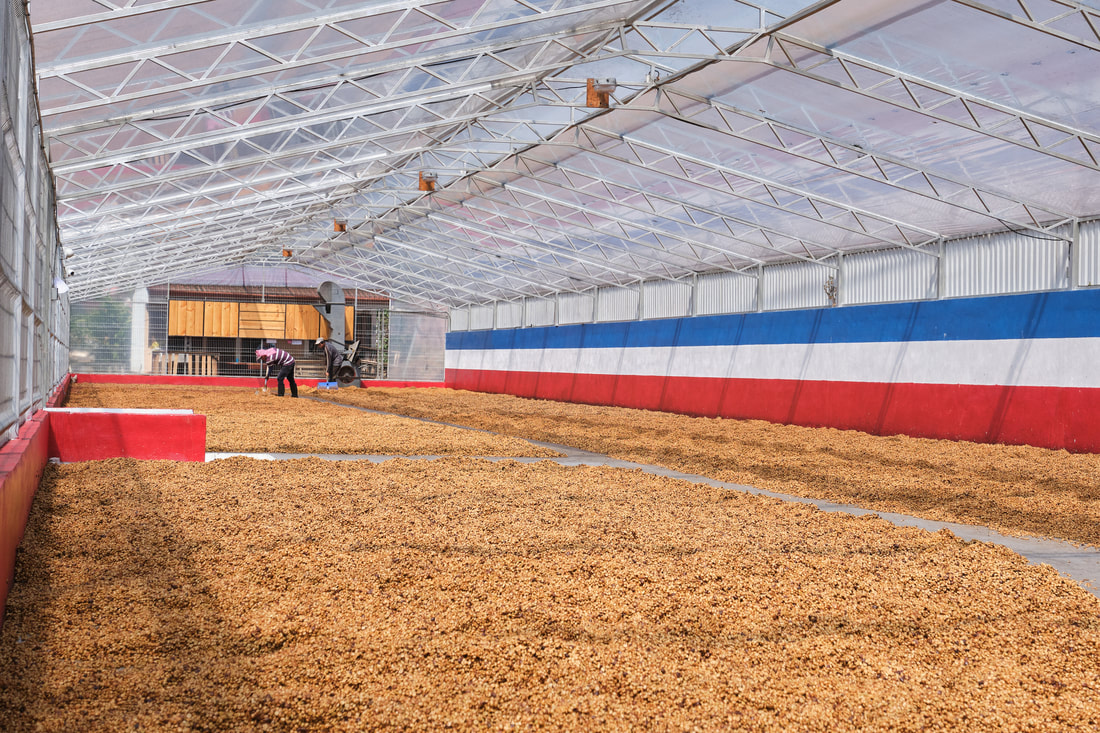|
To enjoy the best possible cup of coffee, make sure your coffee is always fresh. Coffee beans begin to lose their freshness soon after they are roasted. As coffee loses freshness, its natural flavors and aromas are diminished. So, all things being equal, the sooner the beans are used, the better the coffee.
Properly stored, coffee beans will stay good for about a month after roasting. Ground coffee will last for one to two weeks after roasting. That means ground coffee will be more susceptible to the four enemies of fresh coffee: air, moisture, heat, and light. How do you give yourself the best chance for a great, fresh cup of coffee? Buy freshly roasted coffee or coffee that has been packaged for optimal freshness after roasting. Valve-sealed bags typically preserve freshness better than other types of packaging. Coffee beans release carbon dioxide for up to a week after roasting. Newly roasted coffee beans can be packaged in valve-sealed bags without aging, immediately after roasting. The one-way valve allows carbon dioxide to escape but does not let oxygen in. Always buy coffee in an amount that you expect you’ll drink within its “freshness window.” If you’re buying whole bean coffee, buy only the amount you expect to use within a month. Then grind only as many beans as you need, just before your brew your coffee. If you’re buying ground coffee, purchase enough for a week or two at most. How to store coffee to keep it fresh? The key is to keep the coffee — whether whole beans or ground — away from the four agents of deterioration: excessive air, moisture, heat, and light. Keep the air out. Once you’ve opened a package of coffee, don’t leave it in the package. Instead, store it in an air-tight container. Minimize air space in the container as much as possible. Ordinary kitchen canisters can do an acceptable job if they can be tightly closed and there is little air space along with the coffee. But for better results, use a specially designed air-tight coffee storage container, air-tight seals to keep air out, along with one-way valves to let carbon dioxide escape. Avoid moisture. Coffee should be stored in a dry location. Excessive moisture will accelerate the deterioration process. Coffee that has been exposed to too much moisture may develop a sour or “off” taste and aroma. For this reason, it’s not a good idea to store coffee in the freezer or refrigerator. Condensation may develop when the door is opened and closed. You may not encounter a moisture problem if you store small quantities of coffee in the freezer in air-tight containers. But freezer storage doesn’t extend the shelf life. And once you remove coffee from the freezer, don’t put it back. A freezing-thawing cycle is guaranteed to introduce moisture. Keep your coffee away from heat until you brew it. Although you don’t want to store your coffee in the freezer or refrigerator, you do want to keep it cool. Too much heat will also accelerate the breakdown of the coffee’s flavor. If you store coffee in a kitchen cabinet or on the kitchen countertop, be sure it’s not near the stove or the oven. Likewise, avoid sunny locations such as shelves near a window. The time to add the heat is when you brew the coffee — not before!
0 Comments
Leave a Reply. |
Nimbus MusingOur observations Archives
September 2020
Categories |
Nimbus Coffee Roasters - 14491 County Road #3 - Longmont, CO - [email protected]


 RSS Feed
RSS Feed